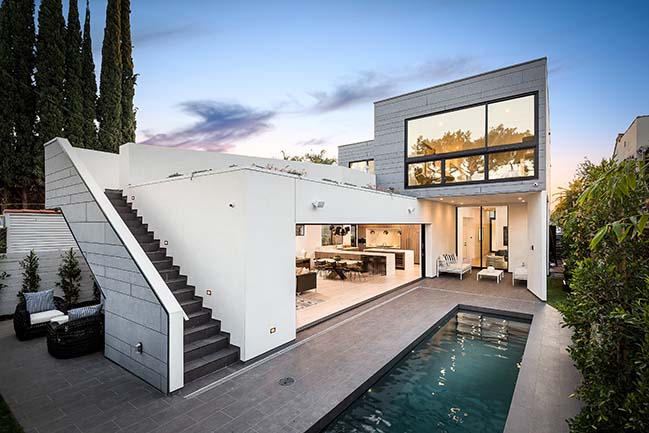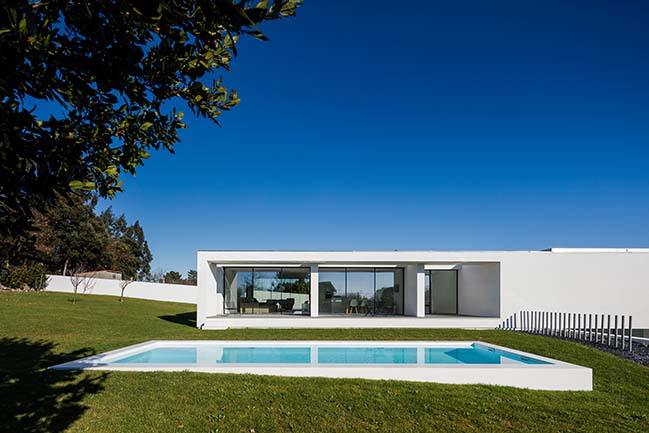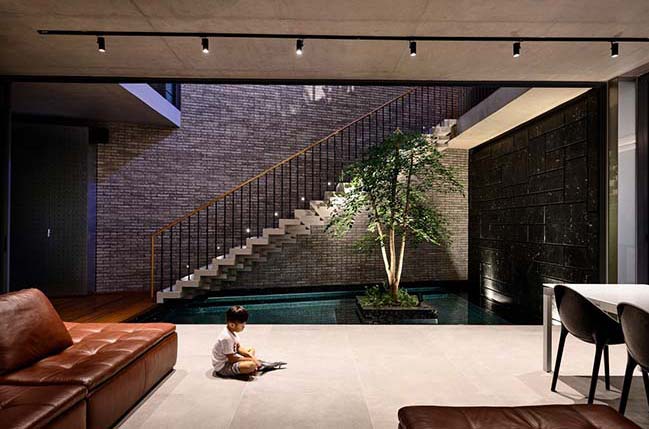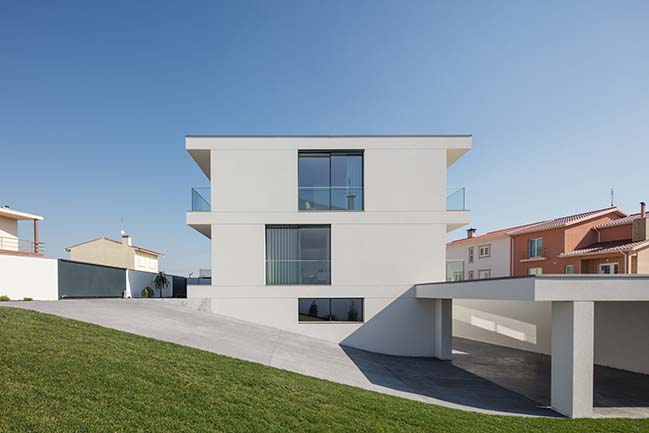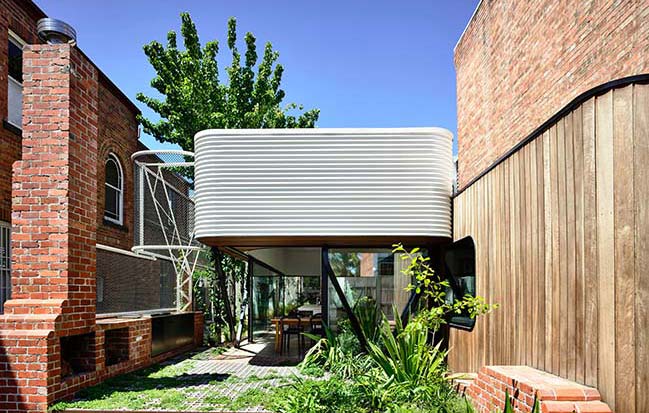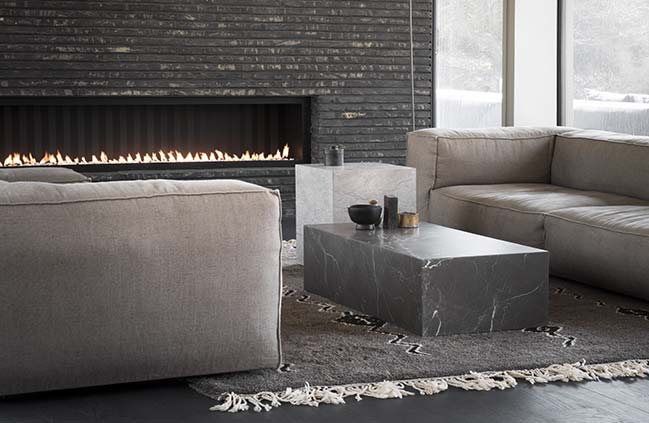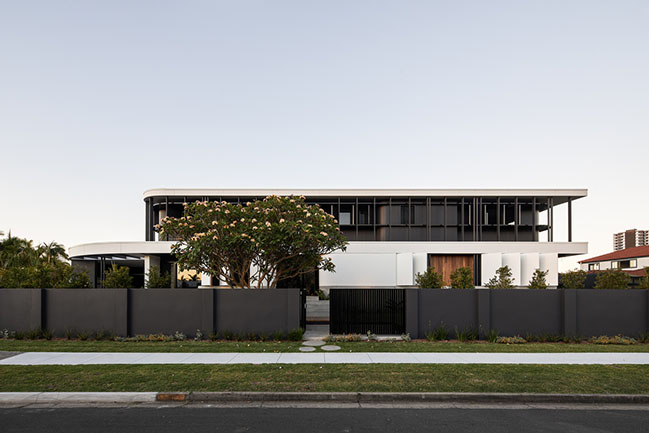06 / 16
2018
The Seattle housing shortage has increased pressure on single family neighborhoods to provide more usable space on limited single family lots. Normative new housing demolishes existing small buildings and replaces them with ‘Seattle Modern Boxes’ that maximize building size and density within zoning setbacks.
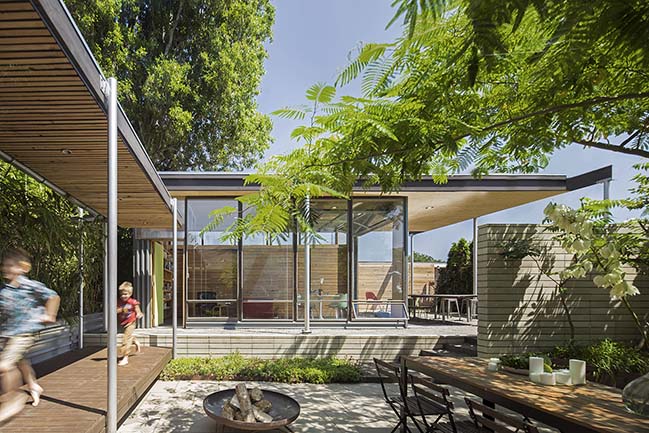
Architect: Wittman Estes
Location: Seattle, WA, USA
Lot size: 4,500 sf
Building size: 360 sf
Team: Matt Wittman, Jody Estes
Photography: Nic Lehoux
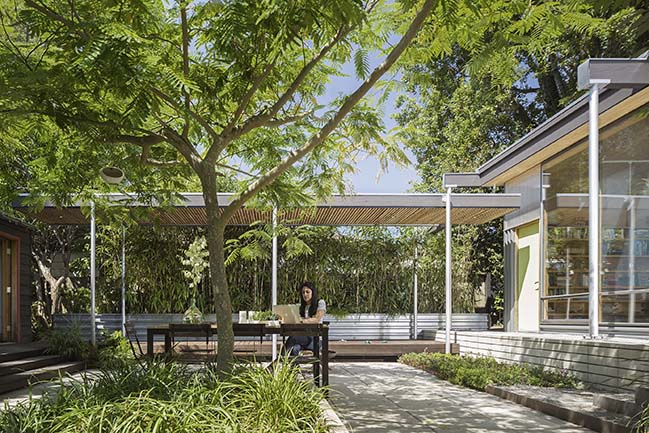
From the architect: Grasshopper Studio offers an alternative prototype of courtyard urbanism by maintaining the existing small footprint of a 1940s house and adding multifunctional studio along the rear yard alley. The newly carved courtyard allows both main house and studio to expand their functional space to the outer edges of the property boundary.
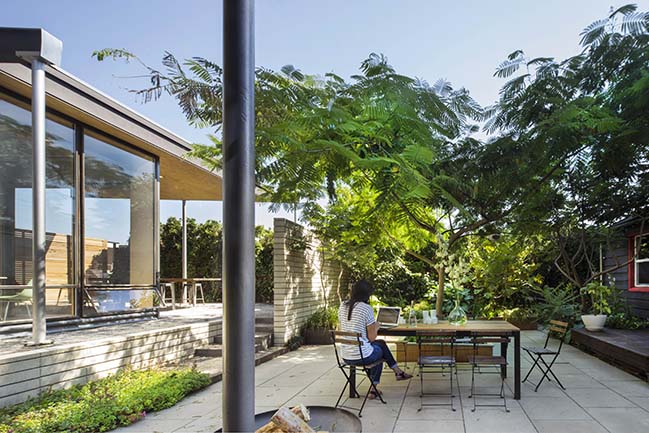
Courtyard urbanism allowed the residents to more than triple their usable square footage by creating a private interior courtyard open to the sky. The wide covered walkway on the north side serves as informal seating as well as being a stage for children’s performances. Inspired by ancient Chinese south facing courtyard housing, the central paved terrace is a protected private area for dining, entertaining, lounging and year-round play space. A Silk tree in the center of the courtyard provides dappled shade in summer. The illusion of a much larger property is created through ‘borrowed landscape’ from adjacent trees and sky above.
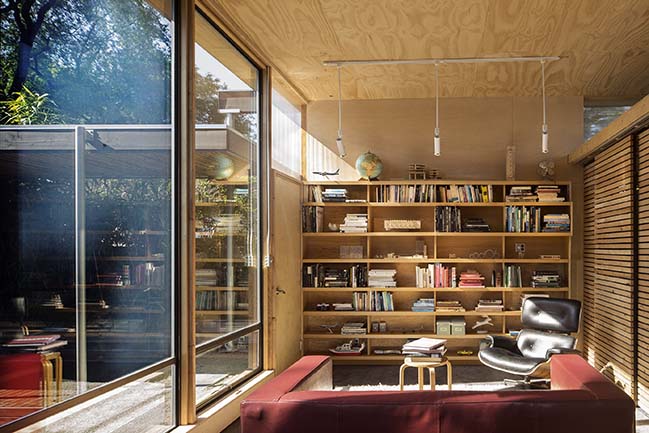
The open plan studio is programmatically indeterminate to encourage maximum flexibility. Future uses include visiting guests, short term rental space, utility/workshop space, and play space for the main house. An open pavilion has thickened edges for storage, bathroom, laundry, and future kitchen. The expansive roof extends to form a carport and outdoor workshop space. The interstitial zones between the studio and outdoors are defi ned by masonry walls, wood decks, and are protected from the weather by large pavilion roofs.
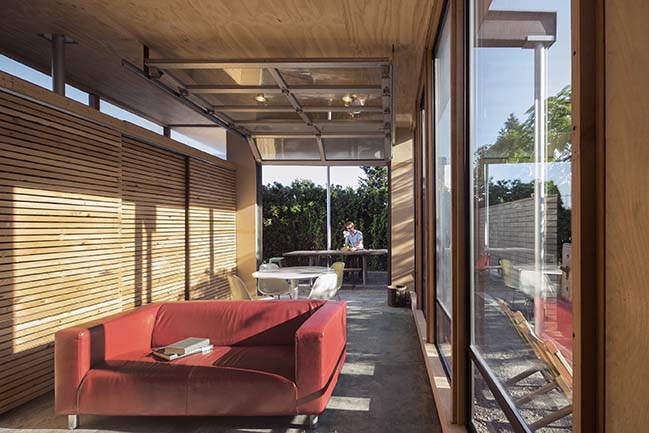
A boundary wall of constructed and landscape elements fi lter and screen the closely adjacent neighbors, creating a private urban oasis in a dense single family neighborhood. The concrete block wall retains the grade change as well as screening the alley from view while the studio is a boundary in itself, screening alley views, and allowing light through the clerestory.
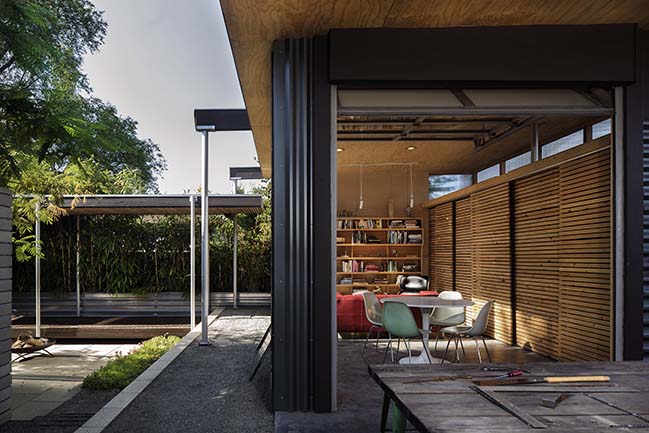
Grasshopper Studio Courtyard is adaptable to a multiplicity of uses and family arrangements. A small built footprint and large private outdoor space is more fl exible and maximizes the use of the entire property. As a response to urban resource scarcity, it encourages rethinking the arrangement of the single family lot and offers Seattle an alternative urbanism for the future.
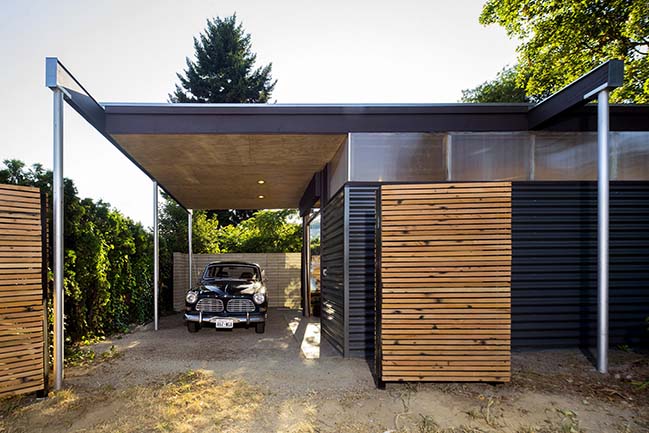
The carport off the back alley has gates built of reclaimed fi r that match the interior wood screens. Steel columns, long wood beams and rafters were repurposed from a nearby 1960s church carport.
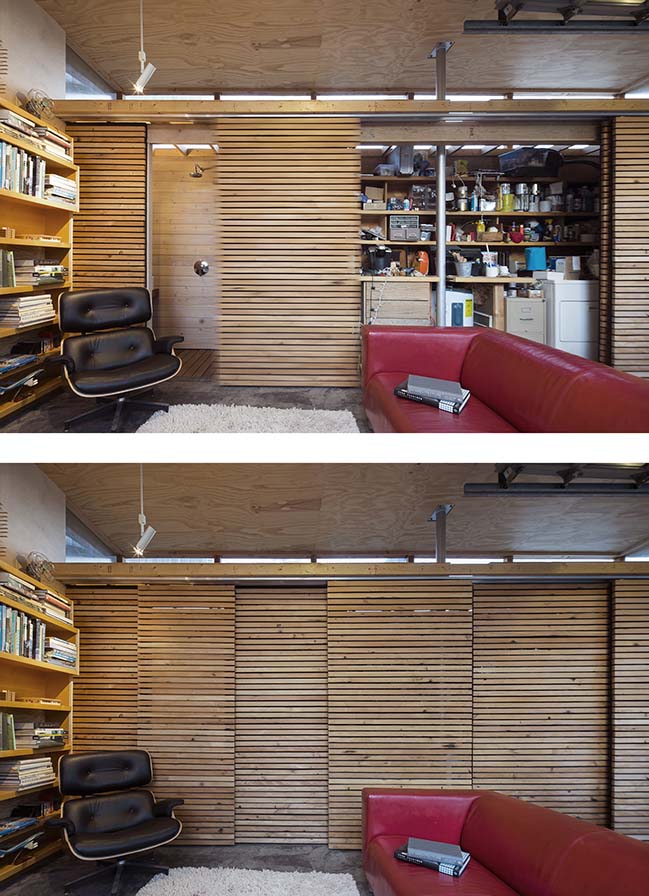
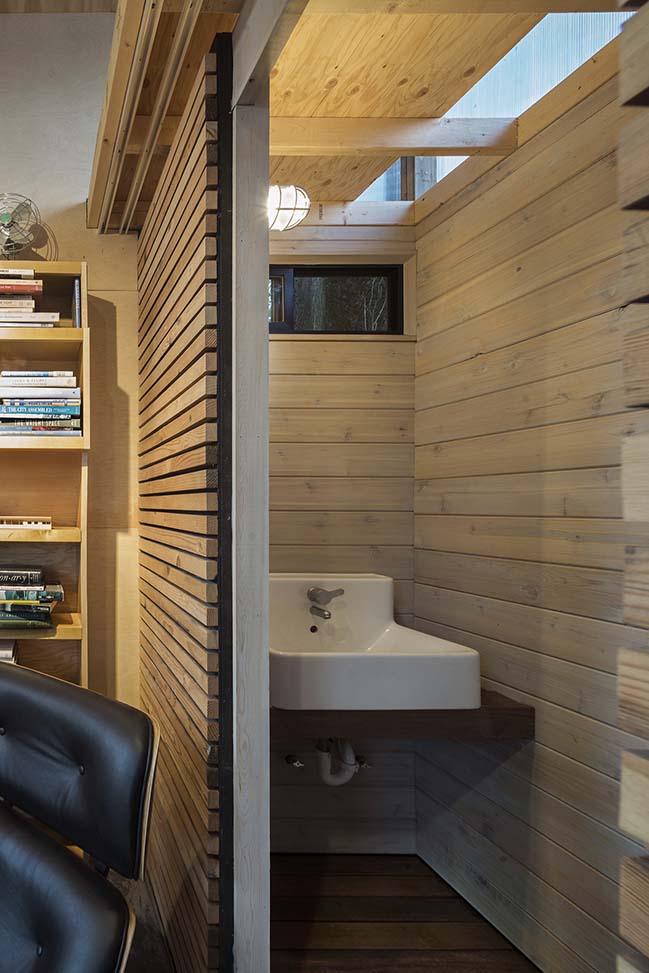
The bathroom is built with outdoor materials of cedar and ipe that can get wet and weather naturally. The open slat wood fl oor drains below, and clerestory windows allow natural light through the stuio and into the courtyard.
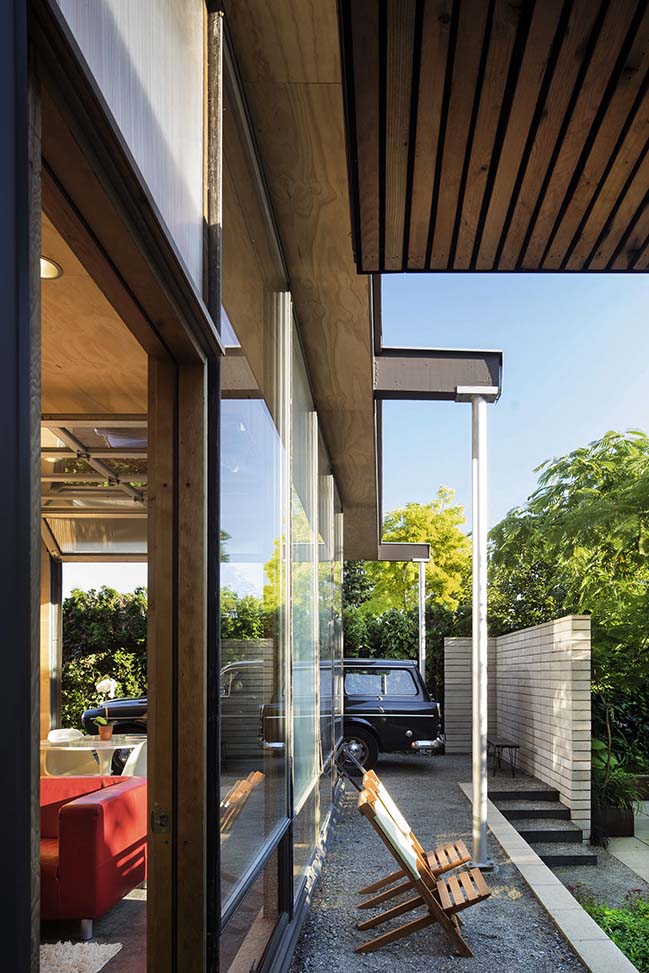
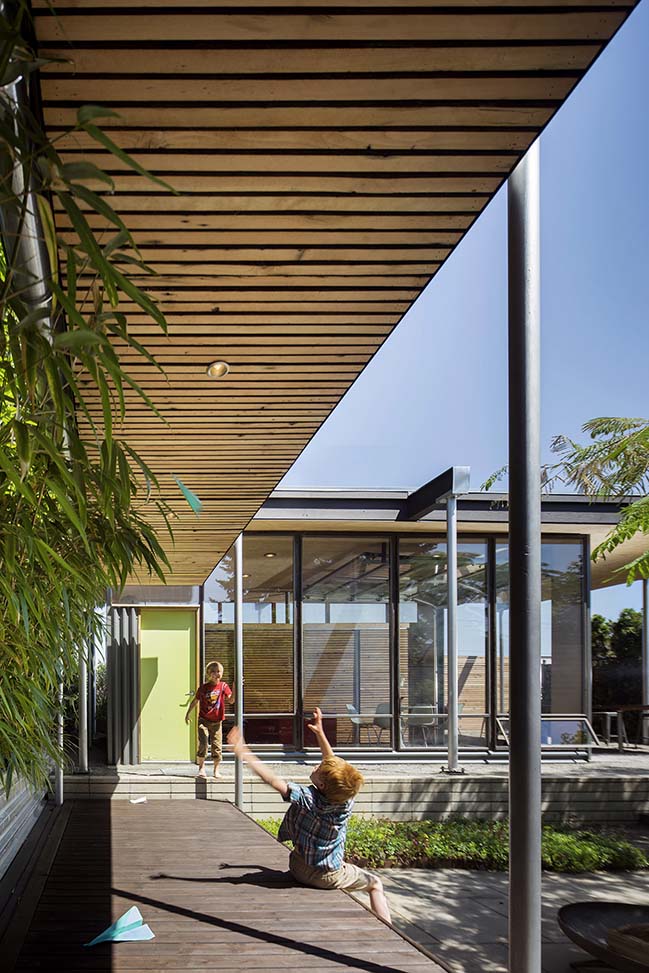
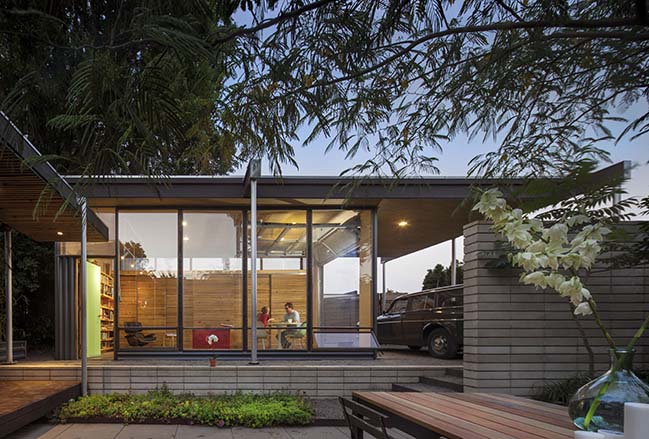
With the wood screens closed, the studio is a retreat from the evening activity of the main house.
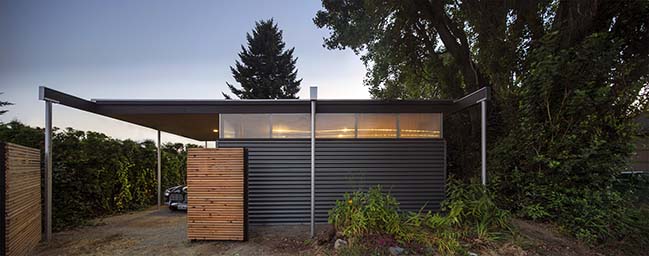
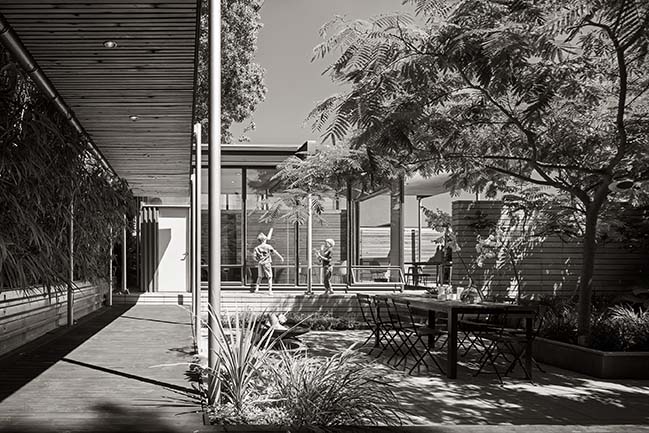
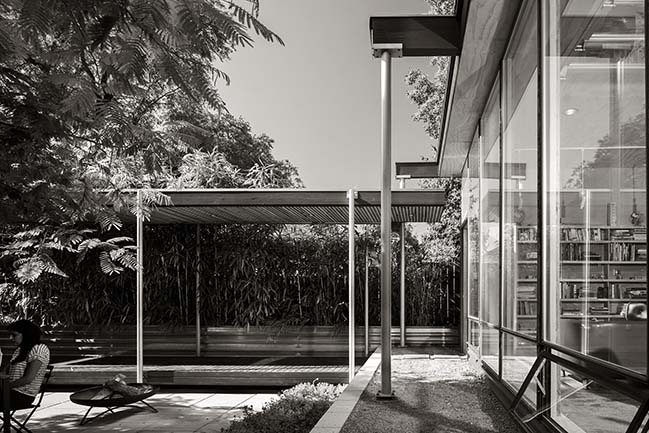
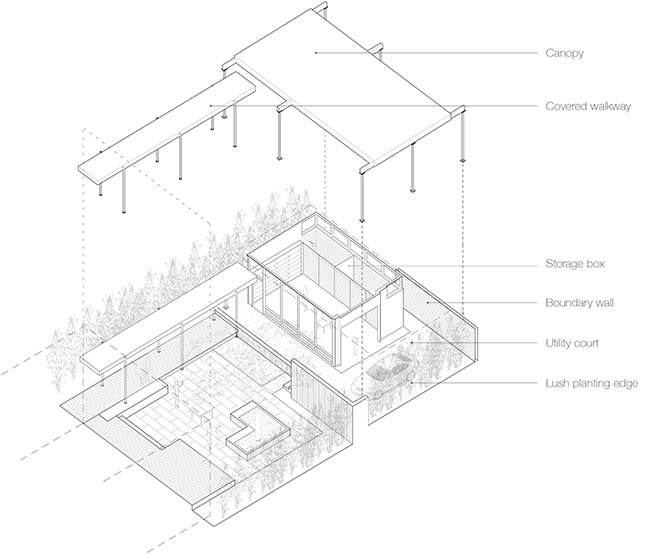
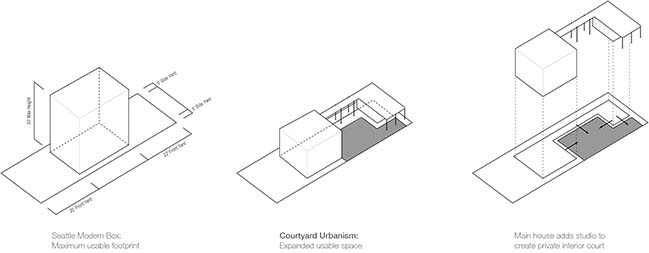
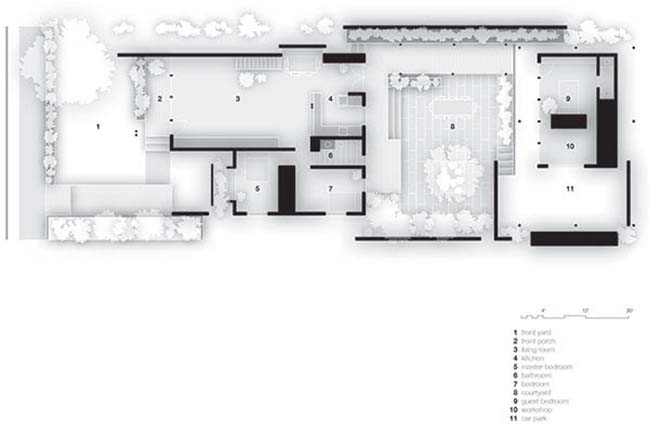
Grasshopper Studio by Wittman Estes
06 / 16 / 2018 The Seattle housing shortage has increased pressure on single family neighborhoods to provide more usable space on limited single family lots
You might also like:
Recommended post: The Eagle House by Justin Humphrey Architects
